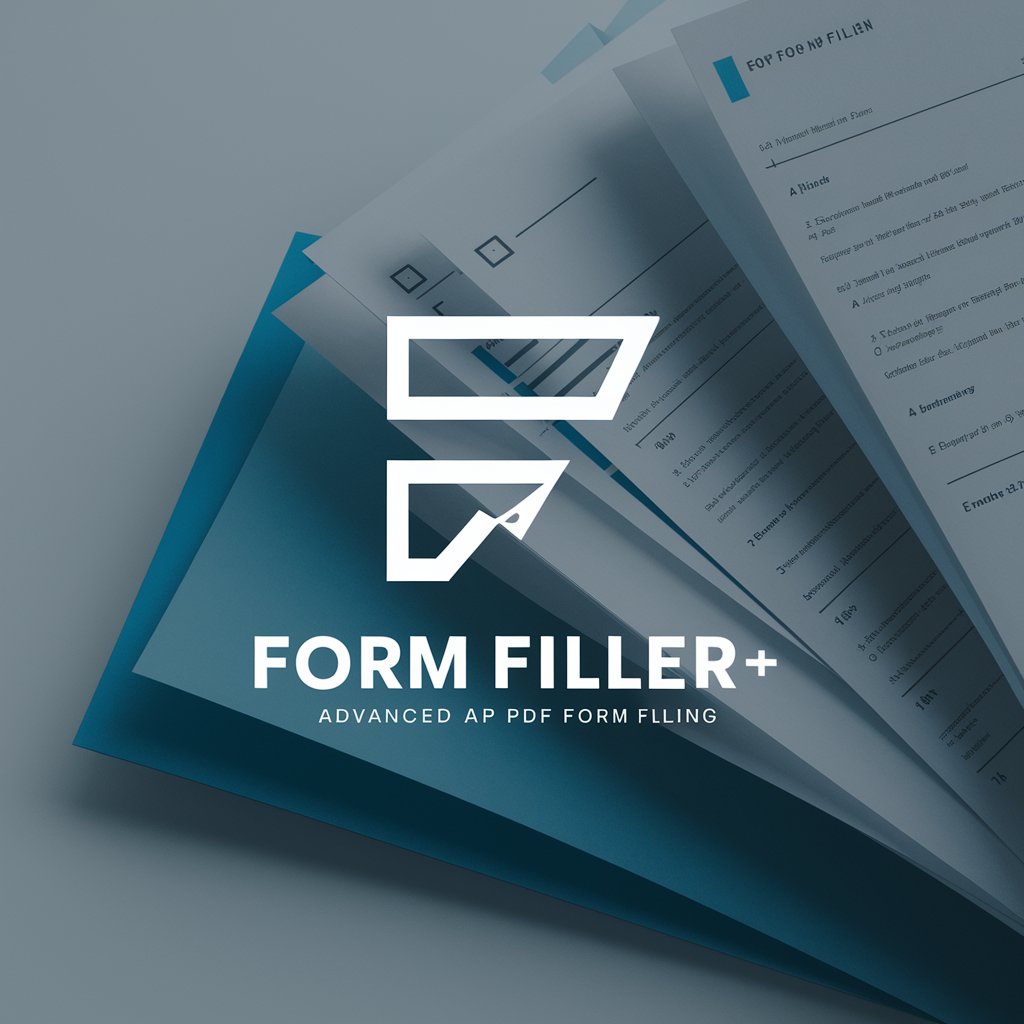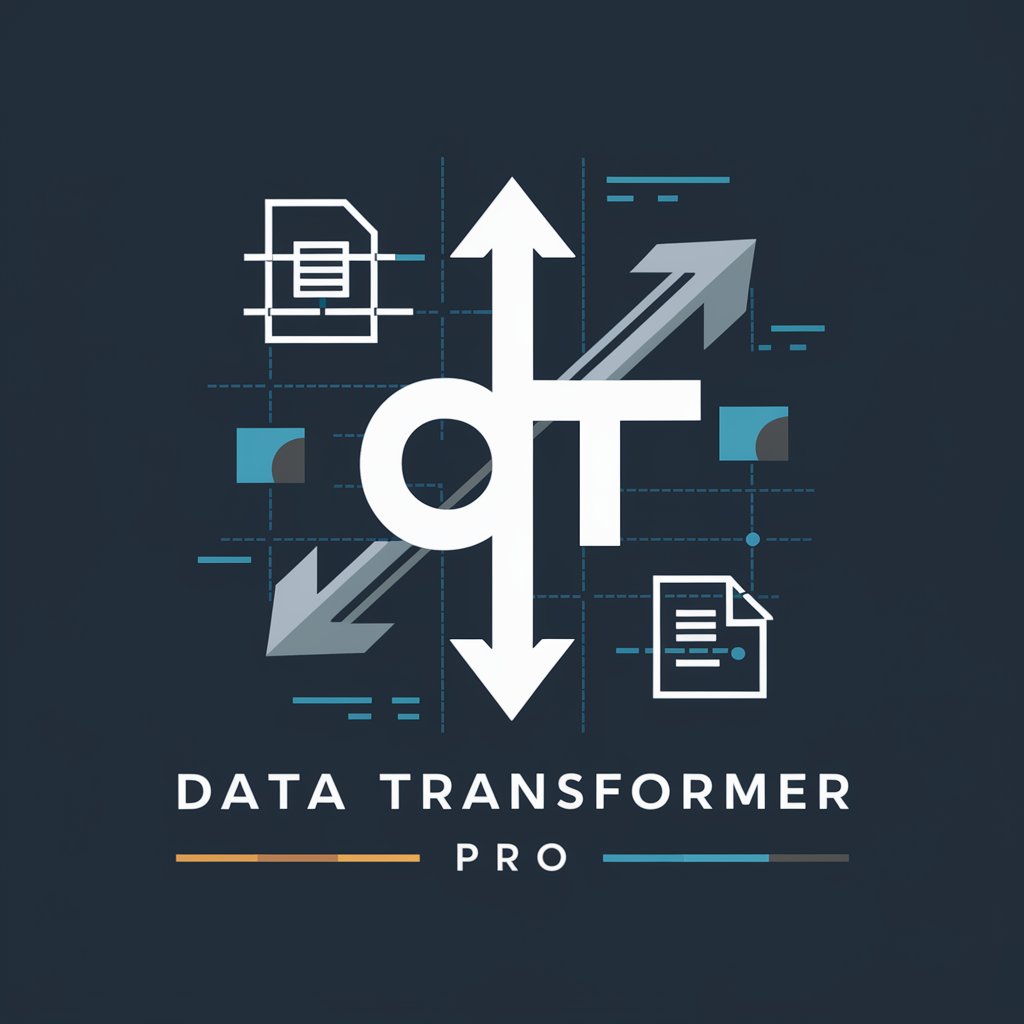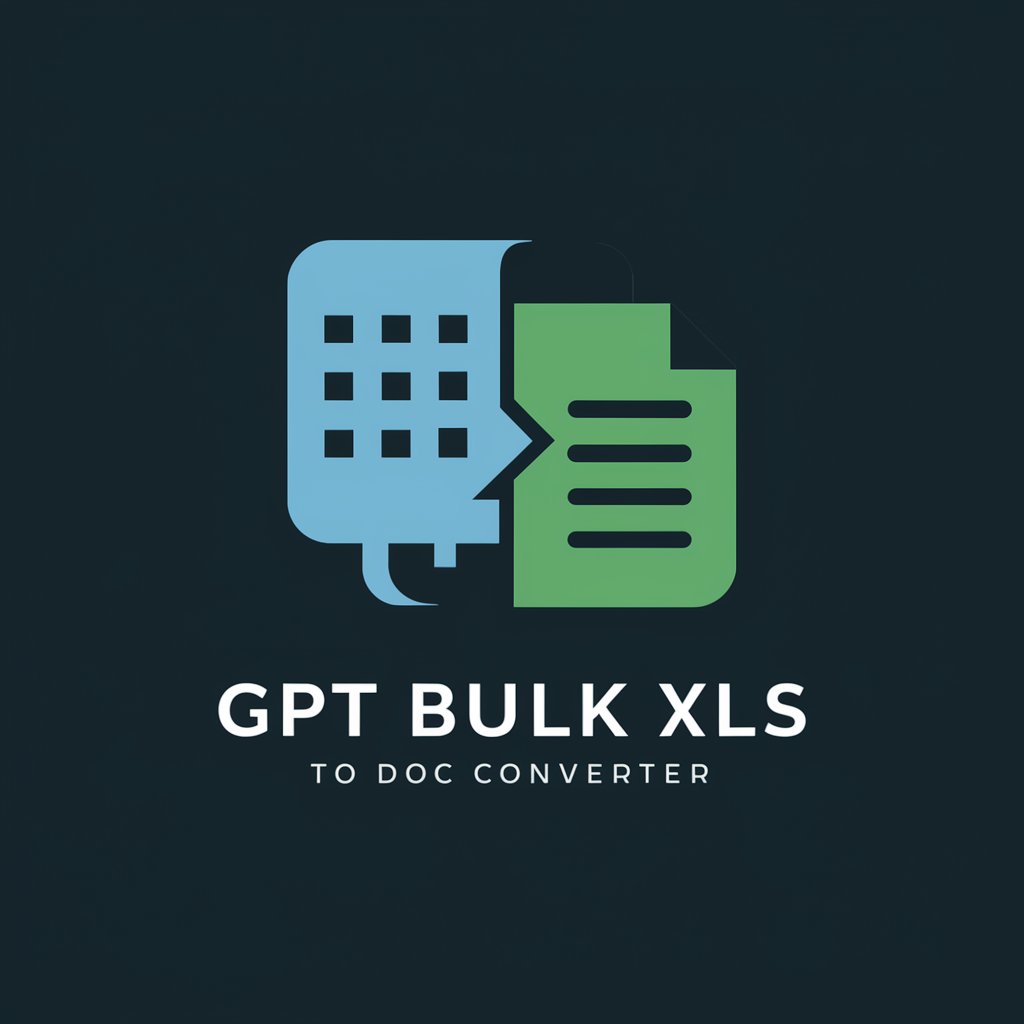10 GPTs for Bulk Processing Powered by AI for Free of 2026
AI GPTs for Bulk Processing refer to advanced generative pre-trained transformer models specifically designed or adapted to handle and automate tasks at scale within various domains. These AI tools excel in processing large volumes of data or requests simultaneously, leveraging the power of GPTs to analyze, understand, and generate human-like responses or outputs. Their relevance in bulk processing lies in their ability to provide tailored, efficient, and accurate solutions for handling extensive datasets, making them invaluable for businesses, researchers, and anyone looking to leverage AI for data-intensive tasks.
Top 10 GPTs for Bulk Processing are: VBA EXCEL,GAM Assist,Form Filler +,Data Transformer Pro,GPT Bulk XLS to Doc Converter,Invoice Data Assistant,Order Inspector,Shirt Order Calculator,Number Serializer,APIM - Fix on-hold numbers
VBA EXCEL
AI-powered automation for Excel tasks.

GAM Assist
AI-powered command generator for Google Workspace admins

Form Filler +
AI-powered, hassle-free form filling

Data Transformer Pro
Transform documents effortlessly with AI.

GPT Bulk XLS to Doc Converter
Transform Spreadsheets into Documents Instantly

Invoice Data Assistant
Streamlining Invoice Management with AI

Order Inspector
Verify Orders Accurately, Power by AI

Shirt Order Calculator
Optimize shirt orders with AI precision.

Number Serializer
Transforming numbers with AI precision.

APIM - Fix on-hold numbers
Automate fixing on-hold numbers with AI

Key Attributes of Bulk Processing GPTs
AI GPTs for Bulk Processing stand out due to their adaptability across a wide range of functions, from simple data sorting to complex analysis and generation tasks. These tools can process extensive datasets in parallel, learn from new data, and adapt to various languages and technical requirements. Special features may include advanced language understanding, image generation, web search capabilities, and custom data analysis, enabling these GPTs to provide comprehensive support for bulk processing needs.
Who Benefits from Bulk Processing AI?
AI GPTs for Bulk Processing are designed to cater to a broad audience, including novices seeking user-friendly interfaces, developers requiring advanced customization options, and professionals in fields like data analysis, marketing, or content generation. These tools are accessible to users without coding skills, while offering extensive customization and integration options for those with technical expertise.
Try Our other AI GPTs tools for Free
Automated Scripting
Discover the power of AI GPTs for Automated Scripting: innovative tools designed to automate coding tasks, making script generation accessible to all skill levels and enhancing productivity for developers.
Director Studies
Discover AI GPTs for Director Studies, the ultimate AI tools designed to innovate and streamline directing tasks. Enhance creativity, productivity, and project management with tailored solutions.
Biographical Studies
Discover how AI GPTs are transforming Biographical Studies with advanced analysis, narrative generation, and comprehensive research tools, making it easier to explore and document lives.
Interactive Polls
Explore AI GPTs for Interactive Polls, the cutting-edge tools designed to transform how we create, distribute, and analyze polls. Engage audiences and glean insights like never before.
Follower Analysis
Unlock the power of AI for in-depth social media analysis with GPT tools designed for comprehensive follower insights, trend forecasting, and engagement optimization.
Learning Shell
Discover AI GPTs for Learning Shell: Tailored AI solutions designed to simplify shell programming and automation, making it accessible to everyone from novices to experts.
Expanding Horizons with AI in Bulk Processing
AI GPTs offer revolutionary solutions in bulk processing, enabling businesses and researchers to harness the power of AI for data analysis, content generation, and more. Their user-friendly interfaces and integration capabilities make them versatile tools that can enhance productivity and efficiency across various sectors.
Frequently Asked Questions
What exactly are AI GPTs for Bulk Processing?
AI GPTs for Bulk Processing are specialized versions of generative pre-trained transformers designed to handle and automate large-scale data processing tasks efficiently.
How do these tools adapt to different bulk processing tasks?
They use advanced machine learning algorithms to learn from data, enabling them to adapt and provide tailored solutions for a wide range of bulk processing tasks.
Can non-technical users operate these GPTs effectively?
Yes, these tools are designed with user-friendly interfaces that allow non-technical users to leverage AI for bulk processing without needing programming skills.
What customization options are available for developers?
Developers can access APIs and development kits to customize and integrate the GPTs into existing systems, tailoring the AI to specific bulk processing needs.
Are there any sectors where AI GPTs for Bulk Processing are particularly useful?
Yes, sectors such as e-commerce, finance, healthcare, and research can greatly benefit from these AI tools for analyzing data, generating reports, and automating repetitive tasks.
How do these AI tools ensure data privacy and security?
AI GPTs for Bulk Processing are designed with security measures to protect data privacy, including encryption and compliance with data protection regulations.
Can these GPTs handle tasks in multiple languages?
Yes, they are equipped with multi-language capabilities, allowing them to process and generate content in various languages.
What makes AI GPTs for Bulk Processing different from traditional data processing tools?
Their ability to understand and generate human-like text, adapt to new information, and process large volumes of data simultaneously sets them apart from traditional tools.